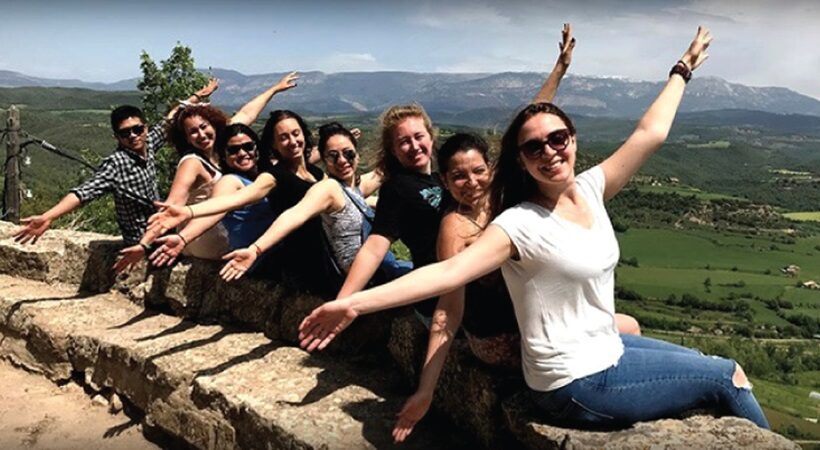Erasmus Mundus was started in 1987 by the European Union under the broader Erasmus+ program and is short for European Region Action Scheme for the Mobility of University Students. The education programme strives to further the goal of greater integration of Europe and increase the quality of education through cooperation and international collaborations. The Erasmus programme aims to make education more inclusive through its scholarships and is meant to maximise research and international collaborative networks. With a programme budget of 14.7 billion euros and 4,000 partner institutions, Erasmus offers the students extraordinary opportunities to learn, travel, and conduct research.
The Erasmus Mundus Masters Courses (EJMDS) are the flagship programmes around which Erasmus Mundus is built. These are high-level integrated study programmes devised by a global alliance of higher education institutions from different countries around the world. The master’s courses are joint master’s programmes and students have the liberty of learning in at least two study periods in two countries. Such master’s courses provide 60,90 or 120 ECTS credits, meaning their duration ranges from 12 to 24 months. However, the majority of them happens to be 24 monthly programmes. At the end of the joint master’s courses, the students are awarded joint degrees or multiple degrees from at least two higher education institutions of the consortium.
There are 149 joint master’s programmes in the EJMDS catalog. The field of study includes social sciences, humanities, life sciences, core sciences, and economic sciences. To illustrate the structure of the programmes, let’s take a brief look at some joint master’s courses that are offered by Erasmus Mundus.
Doc Nomads Joint Master Degree is a two-year documentary filmmaking course. It is being offered by three prominent universities of Portugal, Hungary and Belgium. 24 students from around the world follow a mobility track from Lisbon to Brussels via Budapest. Students are introduced to diverse socio-cultural environments and are taught to apply their skills outside their social contexts. The course is taught in English and provides for scholarships as well.
Tourism Development and Culture Joint Master Degree is intended to make students focus on contemporary theoretical and practical challenges in tourism development and provides critical analytical skills. It is a two-year joint master’s degree course that is taught by four prestigious universities in Sweden, Portugal, Scotland and Malta. The program is well funded by the Erasmus+ scholarship. Students can apply for the scholarship by first getting admitted to the course.
Aquaculture, Environment, and Society Joint Masters give the unique opportunity to study in fours centers of European excellence in aquaculture research in Scotland, France, Crete and the Netherlands. The coursework focuses on industry-led research, internships, and fieldwork to build a strong understanding of the theoretical as well as practical knowledge of aquaculture. The courses are funded by Erasmus+ scholarships, which include tuition fees, travel and a stipend for daily expenses. Most of these courses are taught in English. The eligibility criterion includes a master’s degree. Students can also apply if they are in the final year of their degree and will graduate before the programme starts.
For further information, please take a look at the links below:
https://www.eacea.ec.europa.eu/scholarships/emjmd-catalogue_en



















